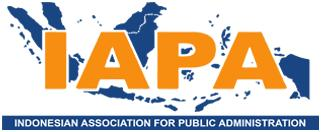Efforts to Improve the Public Service Quality: Implementation of a Modern Electronic Tax System, Self-Efficacy, and Taxpayer Compliance
Abstrak
The success of tax revenue depends on the effectiveness of tax administration that improves taxpayer compliance, the quality of public services, and the uniform implementation of tax provisions. This study aims to explore the factors that affect the quality of public services with a focus on taxpayer compliance, including the influence of e-registration, e-filing, e-efficacy, and digital literacy. A quantitative approach was used with a survey of 535 respondents (416 individual taxpayers and 119 fiscal authorities) at the Directorate General of Taxes of West Java I, II, and III. Statistical analysis was carried out using SEM with the Lisrel application. The results of the study show that e-registration has a positive and significant effect on taxpayer compliance, while e-filing affects compliance but is not significant. Self-efficacy has a positive and significant effect on taxpayer compliance, while digital literacy has an effect but is not significant. At the same time, e-registration, self-efficacy, e-filing, digital literacy, and taxpayer compliance have a positive and significant effect on the quality of public services. These findings make a theoretical contribution by clarifying the factors affecting taxpayer compliance and practical implications for improving tax administration strategies that can improve taxpayer engagement and compliance.
Kata Kunci
Teks Lengkap:
PDFReferensi
Abd Hamid, N., & Hilmi, M. H. (2018). THE INFLUENCE OF TAXPAYERSâ€TM TAX LIABILITY, AFFORDABILITY, AND MORALITY ON TAX AMNESTY PROGRAM IN MALAYSIA. Labuan E-Journal of Muamalat and Society (LJMS), 12, 1–25. https://doi.org/10.51200/ljms.v12i.1347
Abrianto, B. O., Nugraha, X., & Izzaty, R. (2019). Hak Konstitusional Lembaga Kepresidenan Dalam Penolakan Pengesahan RUU APBN Oleh DPR. Jurnal IUS Kajian Hukum Dan Keadilan, 7(3), 519. https://doi.org/10.29303/ius.v7i3.633
Adhariani, D., Hajawiyah, A., & Rini, R. K. (2024). Tax amnesty, corporate social responsibility disclosure, and organizational inertia. Business Strategy & Development, 7(1). https://doi.org/10.1002/bsd2.317
Akhmadeev, R. G., Bykanova, O. A., & Turishcheva, T. B. (2018). Brics’ Foreign Debt Burden and its Impact on Core Institutional Basis. Journal of Reviews on Global Economics, 7, 345–359. https://doi.org/10.6000/1929-7092.2018.07.30
Al-Hiyari, A., Kolsi, M. C., & Mas’ud, A. (2024). Antecedents and consequences of automated VAT solution adoption in Gulf cooperation countries: the case of the United Arab Emirates. Journal of Financial Reporting and Accounting. https://doi.org/10.1108/JFRA-10-2023-0617
Alabede, O. J., , Zainol, A., & Kamil, M. I. (2011). Determinants of tax compliance behavior: a proposed model for Nigeria. International Research Journal of Finance and Economics, 78, 121–136.
Alasfour, F., Samy, M., & Bampton, R. (2016). The Determinants of Tax Morale and Tax Compliance: Evidence from Jordan (pp. 125–171). https://doi.org/10.1108/S1058-749720160000023005
Albert Bandura. (1997). Albert Bandura Self-Efficacy: The Exercise of Control. In W.H Freeman and Company New York (Vol. 43, Issue 9, pp. 1–602).
Alm, J., & Torgler, B. (2011). Do Ethics Matter? Tax Compliance and Morality. Journal of Business Ethics, 101(4), 635–651. https://doi.org/10.1007/s10551-011-0761-9
Andrés Aucejo, E. (2017). Towards an International Code for administrative cooperation in tax matters and international tax governance. Revista Derecho Del Estado, 40, 45–85. https://doi.org/10.18601/01229893.n40.03
Angeli, A., Lattarulo, P., Palmieri, E., & Pazienza, M. G. (2023). Tax evasion and tax amnesties in regional taxation. Economia Politica, 40(1), 343–369. https://doi.org/10.1007/s40888-023-00297-9
Anjarwi, A. W., T, S., Baridwan, Z., & Iqbal, S. (2024). The Deterrent Role of Social Norms on Tax Evasion in Indonesia. Deviant Behavior, 1–20. https://doi.org/10.1080/01639625.2024.2375017
Arimurti, T., Yanti, & Sasqia, U. (2021). The Effect of the Implementation of the E-Filing System with Internet Understanding on Taxpayer Compliance as a Moderation Variable in North Karawang Pratama Tax Service. J. Accounting and Finance, 3(2).
Awaeh, M. A., Lambey, L., & Sherly, P. (2017). Analisis Efektivitas Penerapan Tax Amnesty (Pengampunan Pajak) Terhadap Penerimaan Pajak Pada Kantor Pelayanan Pajak Pratama Bitung. Jurnal Riset Ekonomi, Manajemen, Bisnis Dan Akuntansi, 5(2), 2268–2276. https://ejournal.unsrat.ac.id/index.php/emba/article/view/16529
Bayer, R. C., Oberhofer, H., & Winner, H. (2014). The Occurrence of Tax Amnesties: Theory and Evidence. SSRN Electronic Journal, 487. https://doi.org/10.2139/ssrn.2388497
Ben Ismail, M. M., & AlSadhan, N. (2023). Simultaneous Classification and Regression for Zakat Under-Reporting Detection. Applied Sciences, 13(9), 5244. https://doi.org/10.3390/app13095244
Benke, R. L., & Rhode, J. G. (1980). The job satisfaction of higher-level employees in large certified public accounting firms. Accounting, Organizations and Society, 5(2), 187–201. https://doi.org/10.1016/0361-3682(80)90009-4
Bigwanto, M., Arumsari, I., & Fauzi, R. (2023). The portrayal of electronic cigarettes in Indonesia: a content analysis of news media. BMC Public Health, 23(1), 52. https://doi.org/10.1186/s12889-022-14886-z
Błaszczyk, M., Popović, M., Zajdel, K., & Zajdel, R. (2023). Implications of the COVID-19 Pandemic on the Organization of Remote Work in IT Companies: The Managers’ Perspective. Sustainability, 15(15), 12049. https://doi.org/10.3390/su151512049
Bobek, D. D., Hageman, A. M., & Kelliher, C. F. (2013). Analyzing the Role of Social Norms in Tax Compliance Behavior. Journal of Business Ethics, 115(3), 451–468. https://doi.org/10.1007/s10551-012-1390-7
Bonilla, D., Arias Soberon, H., & Galarza, O. U. (2022). Electric vehicle deployment & fossil fuel tax revenue in Mexico to 2050. Energy Policy, 171, 113276. https://doi.org/10.1016/j.enpol.2022.113276
Brink, W. D., & Porcano, T. M. (2016). The Impact of Culture and Economic Structure on Tax Morale and Tax Evasion: A Country-level Analysis Using SEM (pp. 87–123). https://doi.org/10.1108/S1058-749720160000023004
Carnevale, J. B., Huang, L., Vincent, L. C., Yu, L., & He, W. (2024). Outshined by Creative Stars: A Dual-Pathway Model of Leader Reactions to Employees’ Reputation for Creativity. Journal of Management, 50(7), 2571–2596. https://doi.org/10.1177/01492063231171071
Christina, S. (2022). Tax compliance of individual taxpayers in DKI Jakarta, Indonesia. International Journal of Trade and Global Markets, 15(1), 96. https://doi.org/10.1504/IJTGM.2022.120908
Chyz, J. A., Gal-Or, R., Naiker, V., & Sharma, D. S. (2021). The Association between Auditor Provided Tax Planning and Tax Compliance Services and Tax Avoidance and Tax Risk. The Journal of the American Taxation Association, 43(2), 7–36. https://doi.org/10.2308/JATA-19-041
Clinton, B. C., & Steinberg, D. C. (2019). Providing the Spark: Impact of financial incentives on battery electric vehicle adoption. Journal of Environmental Economics and Management, 98, 102255. https://doi.org/10.1016/j.jeem.2019.102255
Cuckler, G. A., Sisko, A. M., Poisal, J. A., Keehan, S. P., Smith, S. D., Madison, A. J., Wolfe, C. J., & Hardesty, J. C. (2018). National Health Expenditure Projections, 2017–26: Despite Uncertainty, Fundamentals Primarily Drive Spending Growth. Health Affairs, 37(3), 482–492. https://doi.org/10.1377/hlthaff.2017.1655
Curtis, E., & Turley, S. (2014). Audit approaches and business risk auditing.
Davies, H. (2020). The $19,000 Question: How Will the Economic Consequences of the Coronavirus Pandemic Affect the Financial System? Global Perspectives, 1(1). https://doi.org/10.1525/gp.2020.14171
Devano, S., Mulyani, S., Winarningsih, S., & Ghani, E. (2024). Tax amnesty and taxpayer morality in predicting taxpayer compliance. International Journal of Applied Economics, Finance and Accounting, 18(1), 98–106. https://doi.org/10.33094/ijaefa.v18i1.1332
Di Gioacchino, D., & Fichera, D. (2020). Tax evasion and tax morale: A social network analysis. European Journal of Political Economy, 65, 101922. https://doi.org/10.1016/j.ejpoleco.2020.101922
Dwenger, N., Kleven, H., Rasul, I., & Rincke, J. (2016). Extrinsic and Intrinsic Motivations for Tax Compliance: Evidence from a Field Experiment in Germany. American Economic Journal: Economic Policy, 8(3), 203–232. https://doi.org/10.1257/pol.20150083
Emmiryzan, S. (2017). Tax Policy in Action: 2016 Tax Amnesty Experience of the Republic of Indonesia. Laws, 6(4), 16. https://doi.org/10.3390/laws6040016
Fitnawan, E. A. Y., Harsum, W. A., Hasan, A., Hannanu, M. I., Paulus, S. L., Dharma, S., Subhono, B., Lasabuda, A., Supriyadi, R. A., Ciptadi, S., Amanda, R., Mansyur, B., Kusumawati, I., Barliansyah, A., & Zein, A. A. (2021, October 4). Towards Achieving Indonesia’s Oil Production Target of 1 MMBOPD by 2030: An Outlook from IATMI Norway. SPE/IATMI Asia Pacific Oil & Gas Conference and Exhibition. https://doi.org/10.2118/205753-MS
Forney, J., Rosin, C., & Campbell, H. (Eds.). (2018). Agri-environmental Governance as an Assemblage. Routledge. https://doi.org/10.4324/9781315114941
Gerger, G. C. (2012). Tax Amnesties and Tax Complience in Turkey. , 2(3), 107–113. International Journal of Multidisciplinary Thought, 2(3), 107–113.
Graham, G. S., & Denning, P. J. (1971). Protection. Proceedings of the November 16-18, 1971, Fall Joint Computer Conference on - AFIPS ’71 (Fall), 417. https://doi.org/10.1145/1478873.1478928
Hair, J. F., Hult, G. T., Ringle, C., & Sarstedt, M. (2017). A Primer on Partial Least Squares Structural Equation Modeling (PLS-SEM) - Joseph F. Hair, Jr., G. Tomas M. Hult, Christian Ringle, Marko Sarstedt. In Sage.
Harkushenko, O. N. (2022). Prospects of VAT Administration Improvement in Digitalized World: Analytical Review. Journal of Tax Reform, 8(1), 6–24. https://doi.org/10.15826/jtr.2022.8.1.105
Hartanto, G. S., & Sugiharti, D. K. (2019). The Impact of the Motor Vehicle Tax Award on the Increase of the West Java Province’s Locally Generated Revenue. Padjadjaran Jurnal Ilmu Hukum, 6(1), 168–189. https://doi.org/10.22304/pjih.v6n1.a9
Hasibuan, Y., A, N., & BZ, F. S. (2023). Evaluating Account Representative Competence and its Impact on Tax Collection Performance: A Strength Typology-30 Study. 2023 International Conference on Decision Aid Sciences and Applications (DASA), 374–379. https://doi.org/10.1109/DASA59624.2023.10286756
Hatane, S. E., Diandra, J. C., Tarigan, J., & Jie, F. (2023). Voluntary intellectual capital disclosure and earnings forecast in Indonesia–Malaysia–Thailand growth triangle’s pharmaceuticals sector. International Journal of Emerging Markets, 18(1), 1–21. https://doi.org/10.1108/IJOEM-01-2020-0028
Horodnic, I. A., & Williams, C. C. (2022). Tackling undeclared work in the European Union: beyond the rational economic actor approach. Policy Studies, 43(1), 21–55. https://doi.org/10.1080/01442872.2019.1649384
Hussein, R., Mohamed, N., Ahlan, A. R., Mahmud, M., & Aditiawarman, U. (2010). An integrated model on online tax adoption in Malaysia. Proceedings of the European, Mediterranean and Middle Eastern Conference on Information Systems: Global Information Systems Challenges in Management, EMCIS 2010, 2010, 1–16.
Ibrahim, K. S. M. H., Huang, Y. F., Ahmed, A. N., Koo, C. H., & El-Shafie, A. (2022). A review of the hybrid artificial intelligence and optimization modelling of hydrological streamflow forecasting. Alexandria Engineering Journal, 61(1), 279–303. https://doi.org/10.1016/j.aej.2021.04.100
IMF. (2024). World Economic Outlook Update - The Global Economy in a Sticky Spot. Jul, 1–8. https://www.elibrary.imf.org/display/book/9798400278235/9798400278235.xml
Ionita, M., & Pastae, V. (2021). CHALLENGES OF ONLINE LEARNING DURING THE COVID-19 PANDEMIC. 176–181. https://doi.org/10.12753/2066-026X-21-023
İpek, S., Öksüz, M., & Özkaya, S. (2012). Considerations of Taxpayers According to Situation of Benefiting From Tax Amnesty : An Empirical Research Department of Public Finance. International Journal of Business and Social Science, 3(13), 95–101.
Iqbal, M., Azis, Y., Sucherly, S., & Kaltum, U. (2023). Factors affecting performance excellence in Indonesian state-owned enterprises. Problems and Perspectives in Management, 21(4), 264–277. https://doi.org/10.21511/ppm.21(4).2023.21
Irawan, A., Suwondo, S., Kusumastuti, E. D., & Setiawan. (2024). Quantifying tourist contributions: Assessing the impact of domestic and foreign visitors on Bandung’s hotel tax income growth. E3S Web of Conferences, 479, 07003. https://doi.org/10.1051/e3sconf/202447907003
Isa, K. (2014). Tax complexities in the Malaysian corporate tax system: minimize to maximize. International Journal of Law and Management, 56(1), 50–65. https://doi.org/10.1108/IJLMA-08-2013-0036
Ispriyarso, B., & Wibawa, K. C. S. (2023). Reconstruction of the national economy post-COVID-19 pandemic: Critical study of tax reforms in Indonesia. Cogent Social Sciences, 9(1). https://doi.org/10.1080/23311886.2023.2174517
James, S., & Alley, C. (2002). Tax compliance, self-assessment and tax administration Munich Personal RePEc Archive. Journal of Finance and Management in Public Services, 2(2), 27–42. https://mpra.ub.uni-muenchen.de/26906/
Jandhana, I. B. M. P., Zagloel, T. Y. M., & Nurcahyo, R. (2018). Resilient Structure Assessment using Cobb-Douglas Production Function: The Case of the Indonesian Metal Industry. International Journal of Technology, 9(5), 1061. https://doi.org/10.14716/ijtech.v9i5.1862
Ji, Y., & Ranjan, R. (2019). A global climate-economy model including the REDD option. Journal of Environmental Management, 247, 342–355. https://doi.org/10.1016/j.jenvman.2019.06.052
Kakaulina, M. O. (2021). The projected shortfall in personal income tax revenues of regional governments in Russia due to the COVID-19 pandemic. Journal of Tax Reform, 7(1), 39–54. https://doi.org/10.15826/jtr.2021.7.1.089
Khreis, H., Sanchez, K. A., Foster, M., Burns, J., Nieuwenhuijsen, M. J., Jaikumar, R., Ramani, T., & Zietsman, J. (2023). Urban policy interventions to reduce traffic-related emissions and air pollution: A systematic evidence map. Environment International, 172, 107805. https://doi.org/10.1016/j.envint.2023.107805
Kulviwat, S., C. Bruner II, G., & P. Neelankavil, J. (2014). Self-efficacy as an antecedent of cognition and affect in technology acceptance. Journal of Consumer Marketing, 31(3), 190–199. https://doi.org/10.1108/JCM-10-2013-0727
Kurniawan, D. (2020). The Influence of Tax Education During Higher Education on Tax Knowledge and Its Effect on Personal Tax Compliance. Journal of Indonesian Economy and Business, 35(1), 57–72. https://doi.org/10.22146/jieb.54292
Kussuari, P., & Boenjamin. (2019). The Effect of Tax Amnesty Policy and Tax Information System Modernization on Individual Compliance. Public Financial Accounting, 14(1), 59–80.
Lidwina. (2020). Lidwina. 1–8.
Liza, S. N., Andreas, E., & Savitri. (2019). The influence of knowledge and understanding of tax regulations, tax socialization, financial condition, and effectiveness of the tax system on the willingness to pay corporate tax with awareness of paying taxes as an intervening variable. J. Accounting, 7(2), 208–223.
Luttmer, E. F. P., & Singhal, M. (2014). Tax Morale. Journal of Economic Perspectives, 28(4), 149–168. https://doi.org/10.1257/jep.28.4.149
Mahmudah, H., Yustina, A. I., Dewi, C. N., & Sutopo, B. (2023). Voluntary disclosure and firm value: Evidence from Indonesia. Cogent Business & Management, 10(1). https://doi.org/10.1080/23311975.2023.2182625
Maksimchuk, О., Borisova, N., Ereshchenko, T., & Klyushin, V. (2021). Digital technologies in the tax sphere as a factor in the sustainability of economic activity. E3S Web of Conferences, 274, 10002. https://doi.org/10.1051/e3sconf/202127410002
Marpaung, G. N., Dahana, T. N., Pitaloka, L. K., Widia, S., Setiawan, A. B., & Kumala, S. N. (2023). Implementation Of Tax Amnesty Policy on The Indonesia Economic Development. Quality - Access to Success, 24(195), 19–28. https://doi.org/10.47750/QAS/24.195.03
Meiryani, Alkhanifani, D., & Ramadhanti, V. (2023). The Effect of E-System Modernization, Self Efficacy and Digital Literacy Capabilities on Taxpayer Compliance. E3S Web of Conferences, 426, 01020. https://doi.org/10.1051/e3sconf/202342601020
Meiryani, Huang, S. M., Soepriyanto, G., Jessica, Fahlevi, M., Grabowska, S., & Aljuaid, M. (2023). The effect of voluntary disclosure on financial performance: Empirical study on manufacturing industry in Indonesia. PLOS ONE, 18(6), e0285720. https://doi.org/10.1371/journal.pone.0285720
Meiryani, M., Fernando, E., Dewiyanti, S., Angelus, M., & Haliyanti, I. (2021). The Effect of Covid-19 on Regional Revenue of DKI Jakarta Province, Indonesia. 2021 2nd International Conference on Internet and E-Business, 122–128. https://doi.org/10.1145/3471988.3472009
Melnichuk, M. V. (2018). Analysis of the Investment Activity Regulation in Priority Sectors of the Economy: A Case Study of China. EUROPEAN RESEARCH STUDIES JOURNAL, XXI(Issue 4), 783–793. https://doi.org/10.35808/ersj/1246
Michel, D., & Jorgi Sutan, A. (2023). Analyzing the Role of the @sapawarga_jabar Twitter Account in Advancing Digital-Based Public Services towards Smart City Development in West Java Province, Indonesia. E3S Web of Conferences, 440, 03007. https://doi.org/10.1051/e3sconf/202344003007
Ministry of Finance. (2021). Anggaran Pendapatan dan Belanja Negara 2021.
Ministry of Finance. (2024). Anggaran Pendapatan dan Belanja Negara 2025. Depkeu RI.
Mostafa, A. (2020). Self-reported addiction to and perceived behavioural control of waterpipe tobacco smoking and its patterns in Egypt: Policy implications. Eastern Mediterranean Health Journal, 26(1), 18–28. https://doi.org/10.26719/2020.26.1.18
Mulyani, H. S., Sudirno, D., & Hakim, A. (2021). Driving Factors For Local Government Self-Financing Ability. IOP Conference Series: Earth and Environmental Science, 748(1), 012028. https://doi.org/10.1088/1755-1315/748/1/012028
Murweni, I., & . G. (2018). PELAKSANAAN PROGRAM TAX AMNESTY DALAM RANGKA MENINGKATKAN KEPATUHAN WAJIB PAJAK BADAN. Jurnal E-Bis (Ekonomi-Bisnis), 2(2), 53–63. https://doi.org/10.37339/e-bis.v2i2.84
Nurfatriani, F., Salminah, M., & Kurniasari, D. R. (2022). Chapter 10 Fiscal governance to support post-COVID low-carbon development in Indonesia. In De Gruyter Handbook of Sustainable Development and Finance (pp. 193–218). De Gruyter. https://doi.org/10.1515/9783110733488-010
Nurwanah, A., T., S., Rosidi, R., & Roekhudin, R. (2018). Determinants of tax compliance: theory of planned behavior and stakeholder theory perspective. Problems and Perspectives in Management, 16(4), 395–407. https://doi.org/10.21511/ppm.16(4).2018.33
Ochinanwata, C., Igwe, P. A., & Radicic, D. (2024). The institutional impact on the digital platform ecosystem and innovation. International Journal of Entrepreneurial Behavior & Research, 30(2/3), 687–708. https://doi.org/10.1108/IJEBR-01-2023-0015
Oktris, L., Muktiasih, I., & Azhar, Z. (2024). Understanding of Taxation, Taxpayer Morality, and Tax Compliance in Indonesia : The Importance of Tax Awareness. 16(1), 1–14. https://doi.org/10.26740/jaj.v16n1.p1-p14
Oloke, D., Gyoh, L., Daniel, E. I., Oladinrin, O., & Abdallah, N. (2023). The impact of disruptive events on built environment degree apprenticeship delivery – a case study of COVID-19. International Journal of Building Pathology and Adaptation. https://doi.org/10.1108/IJBPA-09-2022-0147
Ordonez, J. A., Fritz, M., & Eckstein, J. (2022). Coal vs. renewables: Least-cost optimization of the Indonesian power sector. Energy for Sustainable Development, 68, 350–363. https://doi.org/10.1016/j.esd.2022.04.017
Paleka, H., & Vitezić, V. (2023). Tax Compliance Challenge through Taxpayers’ Typology. Economies, 11(9), 219. https://doi.org/10.3390/economies11090219
Palil, R. M. (2022). Determinants of Business House Rental Income Taxpayers’ Compliance with Tax System in Afar Region, Northeast Ethiopia. Journal of Tax Reform, 8(3), 270–284. https://doi.org/10.15826/jtr.2022.8.3.121
Park, C.-G., & Hyun, J. K. (2003). Examining the determinants of tax compliance by experimental data: a case of Korea. Journal of Policy Modeling, 25(8), 673–684. https://doi.org/10.1016/S0161-8938(03)00075-9
Permatasari, Y. (2020). Build Indonesia through ASEAN Economic Community. JAS (Journal of ASEAN Studies), 8(1), 81. https://doi.org/10.21512/jas.v8i1.6040
Pinasti, W. (2011). The Effect of Self-Efficacy, Locus of Control, and Demographic Factors on Career Maturity of Students. Syarif Hidayatullah State Islamic University Jakarta.
Pratama, A. (2023). Why participate in tax amnesty The case of the Indonesian individual taxpayer. International Journal of Business and Globalisation, 33(4), 468. https://doi.org/10.1504/IJBG.2023.129537
Pratiwi, L. Y. F., & Somantri. (2011). Modernization of Tax Administration, Human Integrity and Taxpayer Compliance in East Preanger. J. International Conference Proceedings, 4, 243–253.
Prawati, L. D., Setyawan, M. H., & Elsera, M. (2020). The Effect of Tax Rate, E-Billing Payment System, and E-Filing System on Micro, Small and Medium Enterprises (MSMEs) Taxpayer Compliance in Jakarta. 2020 International Conference on Information Management and Technology (ICIMTech), 715–719. https://doi.org/10.1109/ICIMTech50083.2020.9211205
Prinz, A., Muehlbacher, S., & Kirchler, E. (2014). The slippery slope framework on tax compliance: An attempt to formalization. Journal of Economic Psychology, 40, 20–34. https://doi.org/10.1016/j.joep.2013.04.004
Pui Yee, C., Moorthy, K., & Choo Keng Soon, W. (2017). Taxpayers’ perceptions on tax evasion behaviour: an empirical study in Malaysia. International Journal of Law and Management, 59(3), 413–429. https://doi.org/10.1108/IJLMA-02-2016-0022
Purba, H., Sarpingah, S., & Nugroho, L. (2020). The Effect of Implementing E-Filing Systems on Personal Tax Compliance With Internet Knowledge as Moderated Variables (Case Study on Personal Tax Payers at KPP Pratama Jakarta Kramat Jati). International J. Commerce and Finance, 6(1).
Puspita, D., Pahlevi, M., Raharja, Y. M., Hadi, S., Baroto, A. L., Permana, A. W., & Rahayu, W. T. (2022). TWO DECADES OF FISCAL IMPLEMENTATION Two Decades of Fiscal Decentralization.
Rahayu, N., Dwiyanto, N., & Setyowati, M. S. (2016). Tax amnesty policy implementation in Indonesia. International Journal of Economic Research, 13(8), 3539–3549.
Rahayu, S. K. (2021). Utilization of artificial intelligence in tax audit in indonesia. Management and Accounting Review, 20(3), 135–157. https://doi.org/10.24191/mar.v20i03-06
Rosid, A., Evans, C., & Tran-Nam, B. (2016). Do perceptions of corruption influence personal income taxpayer reporting behaviour? Evidence from Indonesia. EJournal of Tax Research, 14(2), 387–425.
Santalina, N. M., & Yudantara, I. G. A. P. (2020). The effect of self efficacy, tax services, and tax sanctions on taxpayer compliance. Scientific J. Accounting Students.
Sawyer. A. (2005). Targeting Amnesties at Ingrained Evasion New Zealand Initiative Warranting Wider Consideration. J. Australasian Tax Tchrs. Ass’n, 1(84).
Sayidah, N., & Assagaf, A. (2019). Tax amnesty from the perspective of tax official. Cogent Business & Management, 6(1). https://doi.org/10.1080/23311975.2019.1659909
Scarcella, L. (2020). E-commerce and effective VAT/GST enforcement: Can online platforms play a valuable role? Computer Law & Security Review, 36, 105371. https://doi.org/10.1016/j.clsr.2019.105371
Sengupta, D., & Shastri, N. (2019). Digital Payments through PFMS - Facilitating digital inclusion and accelerating transformation to a “Digital Economy.” Proceedings of the 12th International Conference on Theory and Practice of Electronic Governance, 196–201. https://doi.org/10.1145/3326365.3326391
Setiorini, K. R., Rahmawati, Payamta, & Hartoko, S. (2021). The Pentagon fraud theory perspective: understanding of motivation of executives to manipulate with the financial statements of a state-owned enterprise. Economic Annals-ХХI, 194(11–12), 104–110. https://doi.org/10.21003/ea.V194-13
Shkolnyk, I., Kozmenko, S., Drahosova, J., Kozmenko, O., & Aldiwani, K. (2021). State budget revenue optimization using the simplex method. Journal of International Studies, 14(2), 245–266. https://doi.org/10.14254/2071-8330.2021/14-2/16
Siglé, M., Goslinga, S., Speklé, R., van der Hel, L., & Veldhuizen, R. (2018). Corporate tax compliance: Is a change towards trust-based tax strategies justified? Journal of International Accounting, Auditing and Taxation, 32, 3–16. https://doi.org/10.1016/j.intaccaudtax.2018.06.003
Šimović, H., Blažić, H., & Štambuk, A. (2016). Income vs. consumption-based concept of direct taxation: Eternal debate in Croatia. Ekonomski Pregled, 67(3), 185–205.
Stark, J. A., & Kirchler, E. (2017). Inheritance tax compliance – earmarking with normative value principles. International Journal of Sociology and Social Policy, 37(7/8), 452–467. https://doi.org/10.1108/IJSSP-07-2016-0086
Sudarma, I. M., & Darmayasa, I. N. (2017). Does Voluntary Tax Compliance Increase After Granting Tax Amnesty? GATR Accounting and Finance Review, 2(3), 11–17. https://doi.org/10.35609//afr.2017.2.3(2)
Suharsono, Y., & Istiqomah. (2014). Validity and Reliability of Self-Efficacy Scales. Scientific J. Applied Psychology, 2(1).
Suharyono. (2018). The Effect of Applying E-Filing Applications towards Personal Taxpayer Compliance in Reporting Annual Tax Returning (SPT) in Bengalis State Polytechnic Indonesia. International Journal of Public Finance, 3(1), 47–62. https://doi.org/10.30927/ijpf.432848
Sukiyaninsih, T. W. (2020). Study of E-System Implementation and Self-Assessment System Implementation on Taxpayer Compliance. J. Accounting and Management, 17(1).
Supardianto, Ferdiana, R., & Sulistyo, S. (2019). The Role of Information Technology Usage on Startup Financial Management and Taxation. Procedia Computer Science, 161, 1308–1315. https://doi.org/10.1016/j.procs.2019.11.246
Tahir, R. (2015). Quality of work life factors and employee engagement. Business Management Journal, 11(2), 82–119.
Tahir, R., Rudiyanto, Prayitno, A., Amiruddin, D., & Rosita, T. (2019). Employee competencies and compensation strategies as company’s strategic effort to escalate employee performance. International Journal of Recent Technology and Engineering, 8(3), 7200–7208. https://doi.org/10.35940/ijrte.C6220.098319
Tahir, R., Vidiansyah, A. N., Suryadana, L., & Rakhman, C. U. (2019). Employee Engagement as a Performance Driver of State-Owned Enterprises (SOE’s) in Indonesia. In researchgate.net. https://www.researchgate.net/profile/Rusdin_Tahir/publication/338901048_Employee_Engagement_as_a_Performance_Driver_of_State-Owned_Enterprises_SOE’s_in_Indonesia/links/5e31c79a299bf1cdb9fc86b7/Employee-Engagement-as-a-Performance-Driver-of-State-Owned-Ent
Thamrin, M. H., Eriza, F., Faisal, M., Nasution, I. K., Afrizal, & Dalimunthe, M. A. (2023). Religiosity in Paying Zakat and Tax Compliance in Medan City. Pharos Journal of Theology, 104(3), 1–12. https://doi.org/10.46222/pharosjot.104.330
Thuneibat, N., B, A., M, A., & Thneibat, H. (2022). The Mediating Role of Innovation On the Relationship Between Information Technologies and Reducing Tax Evasion. Information Sciences Letters, 11(5), 1359–1370. https://doi.org/10.18576/isl/110505
Van Wyk, K., & Marvel, J. A. (2018). Strategies for Improving and Evaluating Robot Registration Performance. IEEE Transactions on Automation Science and Engineering, 15(1), 320–328. https://doi.org/10.1109/TASE.2017.2720478
Whealan George, K. (2019). The Economic Impacts of the Commercial Space Industry. Space Policy, 47, 181–186. https://doi.org/10.1016/j.spacepol.2018.12.003
Wibowo, H., & Mauritsius, T. (2022). Factors That Affect the E-Filing Usage in Indonesia: an Extension of Technology Acceptance Model and Theory of Planned Behavior. Journal of Theoretical and Applied Information Technology, 100(7), 2169–2180.
Williams, C. C. (2014). Policy Approaches Towards Undeclared Work. 4, 0–44.
Windebank, J., & Horodnic, I. A. (2017). Explaining participation in undeclared work in France: lessons for policy evaluation. International Journal of Sociology and Social Policy, 37(3/4), 203–217. https://doi.org/10.1108/IJSSP-12-2015-0147
Xavier, V. K., Elias, I. P., & Nazar, S. N. (2024). Pandemic, War and Geo-Political Risk: The Outlook for Global Economy (pp. 25–61). https://doi.org/10.1007/978-981-97-4367-4_2
Yuniarta, G. A., & Purnamawati, I. G. A. (2020). Spiritual, psychological and social dimensions of taxpayers compliance. Journal of Financial Crime, 27(3), 995–1007. https://doi.org/10.1108/JFC-03-2020-0045
Zame, K. K., Brehm, C. A., Nitica, A. T., Richard, C. L., & Schweitzer III, G. D. (2018). Smart grid and energy storage: Policy recommendations. Renewable and Sustainable Energy Reviews, 82, 1646–1654. https://doi.org/10.1016/j.rser.2017.07.011
Zasko, V., Sidorova, E., Komarova, V., Boboshko, D., & Dontsova, O. (2021). Digitization of the Customs Revenue Administration as a Factor of the Enhancement of the Budget Efficiency of the Russian Federation. Sustainability, 13(19), 10757. https://doi.org/10.3390/su131910757
DOI: https://doi.org/10.24198/jmpp.v9i1.58803
Refbacks
- Saat ini tidak ada refbacks.
Jurnal Manajemen Pelayanan Publik Indexed By:



This work is licensed under a Creative Commons Attribution-ShareAlike 4.0 International License.


















21.png)



.png)